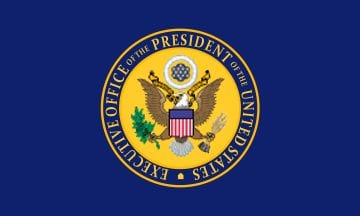
President Trump has signed the much anticipated new travel ban that stops the issuance of visas and does not allow entry of nationals to the U.S. from: Iran, Libya, Somalia, Sudan, Syria and Yemen. Notably, nationals from Iraq are no longer subject to the travel ban. The ban will last for 90 days and will go in to effect on March 16th. The new Executive order also supersedes and eliminates the executive order signed in January that was rejected by the courts. While the ban will start in 10 days, those applying from the 6 listed countries should not expect an easy visa issuance process through the period up to March 16th.
Who is Impacted by the Travel Ban?
The new executive order bars nationals from Iran, Libya, Somalia, Sudan, Syria and Yemen from entering the U.S. unless they meet certain predefined criteria. In addition, the order temporarily stops the entry to the U.S. of all refugees for 120 days. The language here has been changed for Syrian refugees as the previous order banned Syrian refugees from entering the U.S. indefinitely. Unlike the old order, Syrian refugees are now treated the same way as other refugees.
What are some of the Changes from the Previous Order & What Stayed the Same?
The order has been drafted to address some of the issues associated with the first executive order and to presumably meet any Constitutional challenge that may be put forth. It is expected that this order will also be challenged in the Courts and we will follow any developments in that area. Notable changes include the following:
- Iraqi nationals are no longer subject to the travel ban so the ban now only applies to the six countries listed above.
- Green card holders that are also nationals of the six countries are no longer subject to the travel ban. In the previous order, green card holders that were nationals of the 7 countries were also banned in the initial order but could apply for a discretionary waiver to enter the U.S..
- Under the previous order, foreign nationals from the 7 impacted countries that had visas (eg. H1-B, E-2, L-1, B-1, B-2) were subject to the ban. The new order exempts holders of a valid visas and this applies even in situations where the applicant had not yet entered the U.S.. The order also makes provisions to reinstate or replace visas that were revoked or cancelled under the previous order.
- The previous order banned applied to dual nationals even if they had another valid passport. The new order exempts dual nationals that have a valid passport from a country that is not on the list who have valid visas.
- The following additional categories of foreign nationals are exempt:
- Those holding an advance parole document
- Those holding certain diplomatic visas – Eg. G Visa
- Those granted Asylum
- Refugees that have already been admitted to the U.S.
- Refugees that have their admittance to the U.S. organized the U.S. Government.
- The new order also eliminates any preference for religious minorities which was something that was present in the first order. The language of the order is also toned down considerably from the first order. For example, the section describing “those who would place violent ideologies over American Law” has been eliminated.
- Like the first order, the visa interview waiver program has also been suspended (requiring visa interviews for all applicants) except of statutory exemptions. The order calls for increased staffing at the Consulates to address wait times that may result from the additional interviews that will be required.
- Like the first order, the order calls for a review of all visa reciprocity agreements (fees paid and length of time a visa can be issued for) and modifications where necessary.
Are there Waivers Available?
The order allows for discretionary waivers if the applicant can show that the denial of entry will cause undue hardship and that their entry is in the national interest and the entry would not pose a threat to national security. It is likely that the waivers will be difficult to get.
Resources
The government has provided a Fact Sheet and an FAQ that explain the order’s impact for certain foreign nationals.